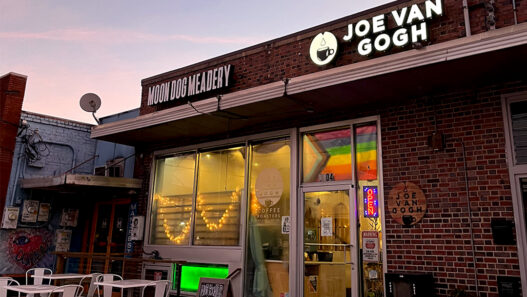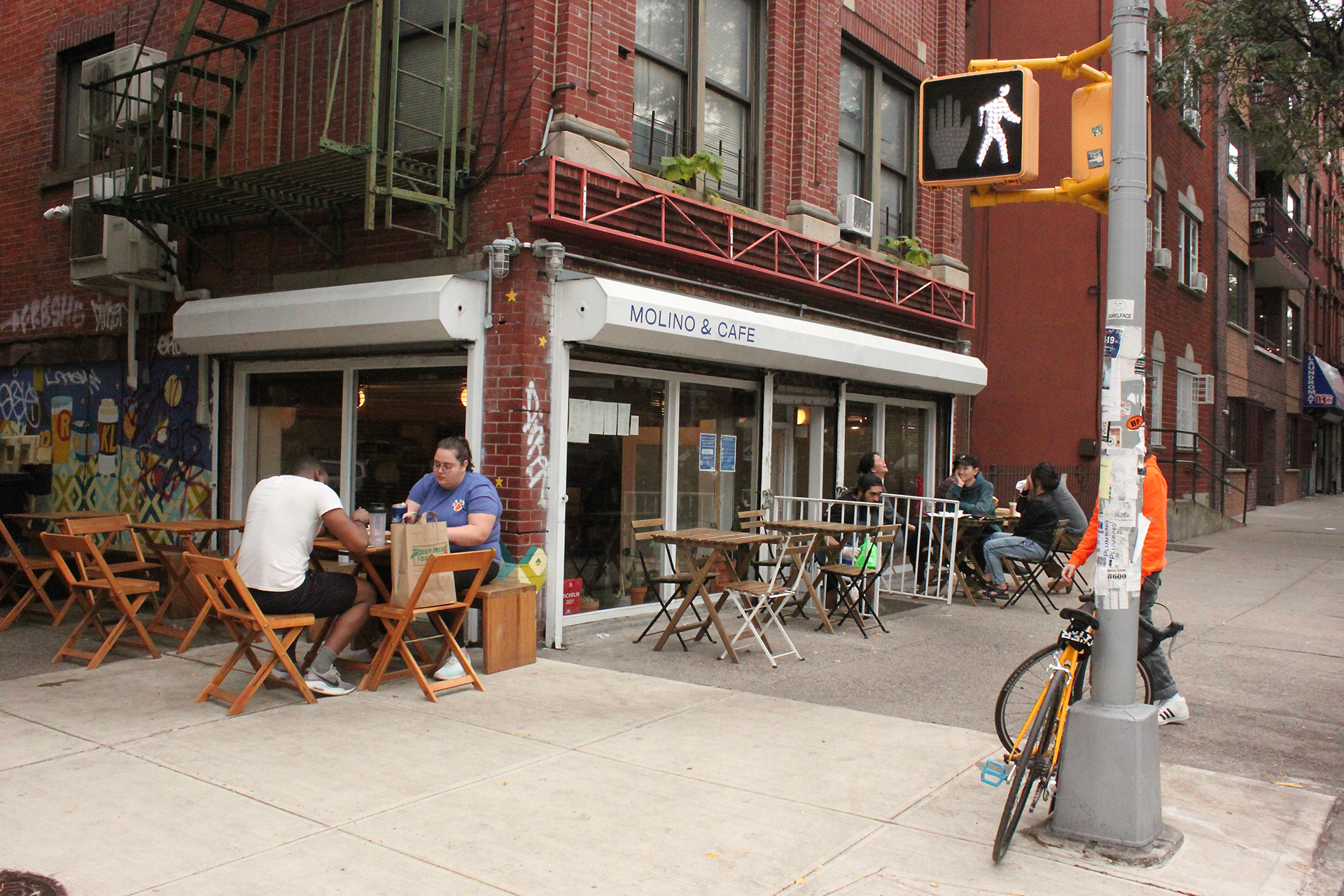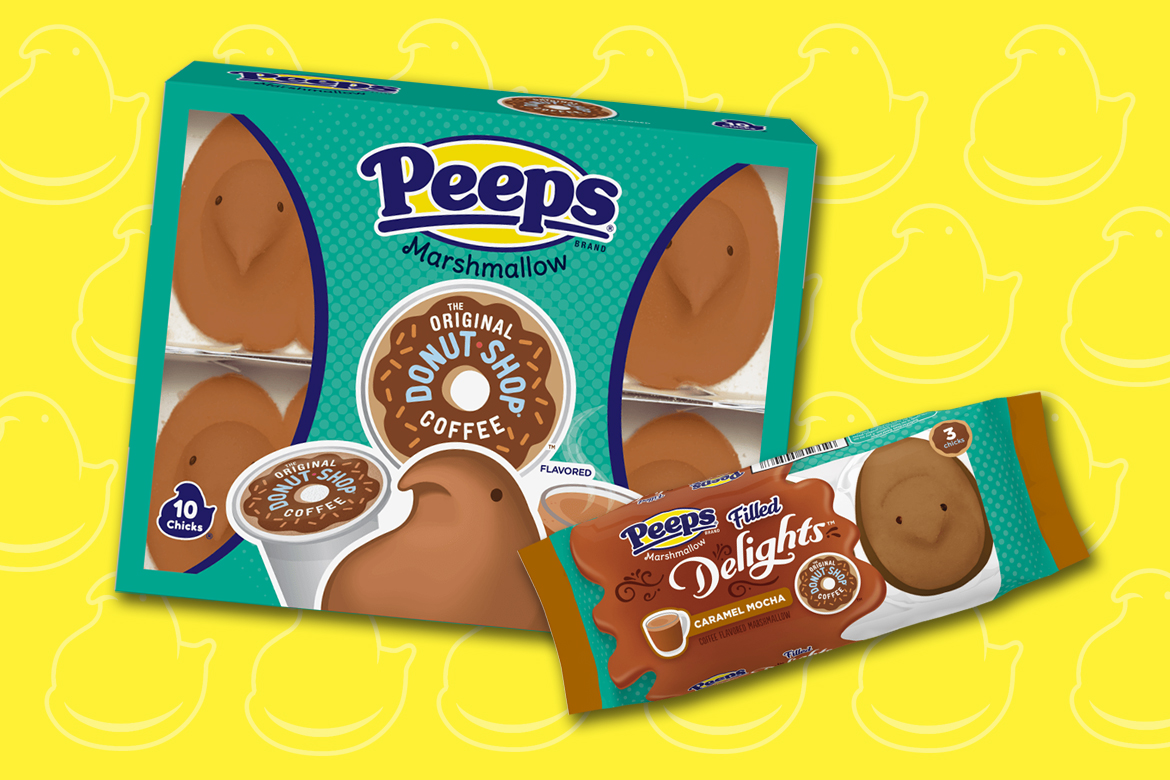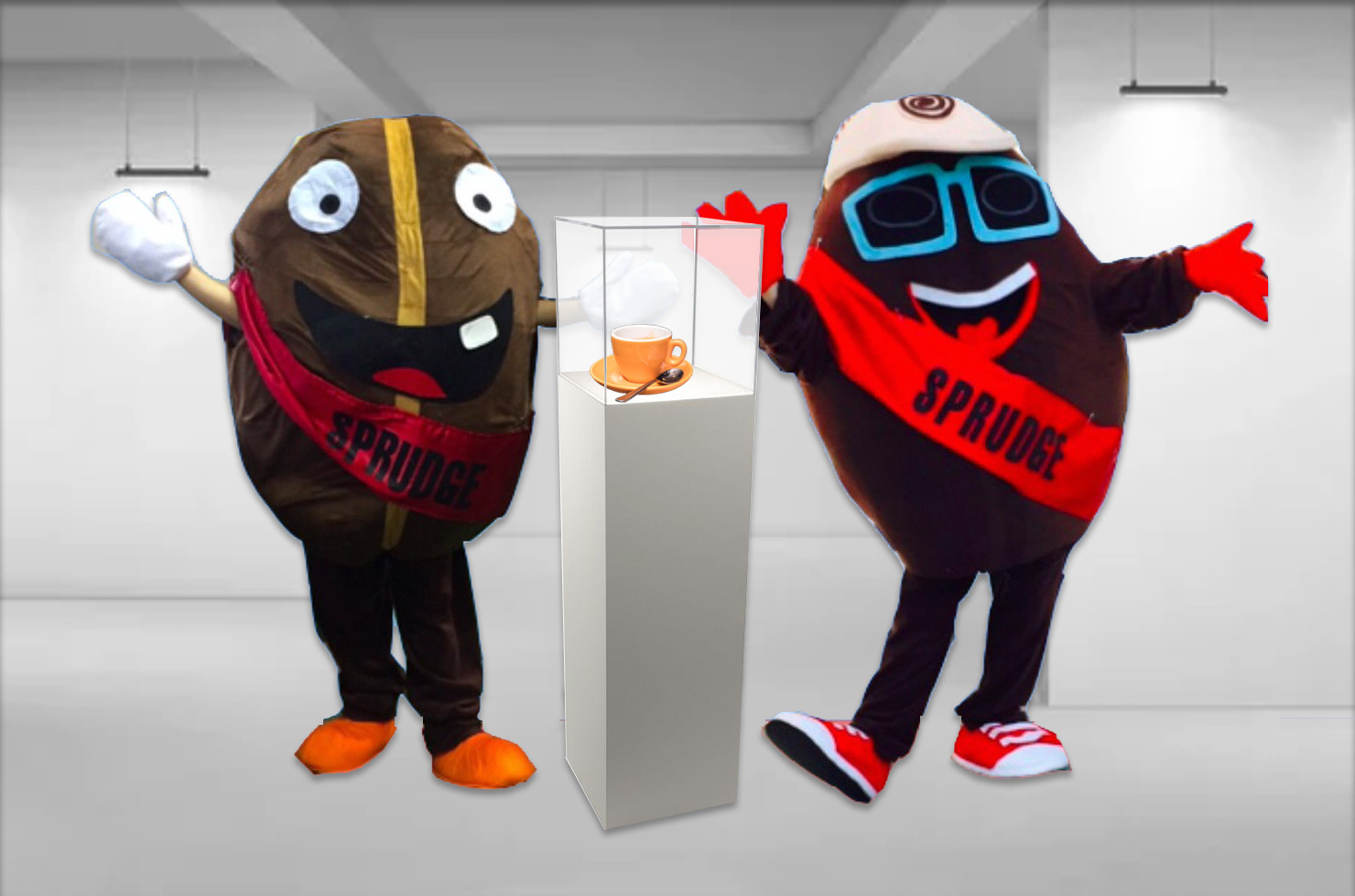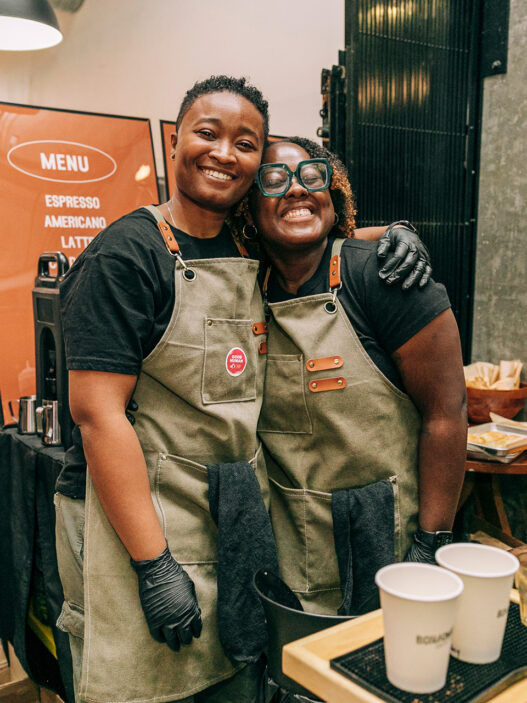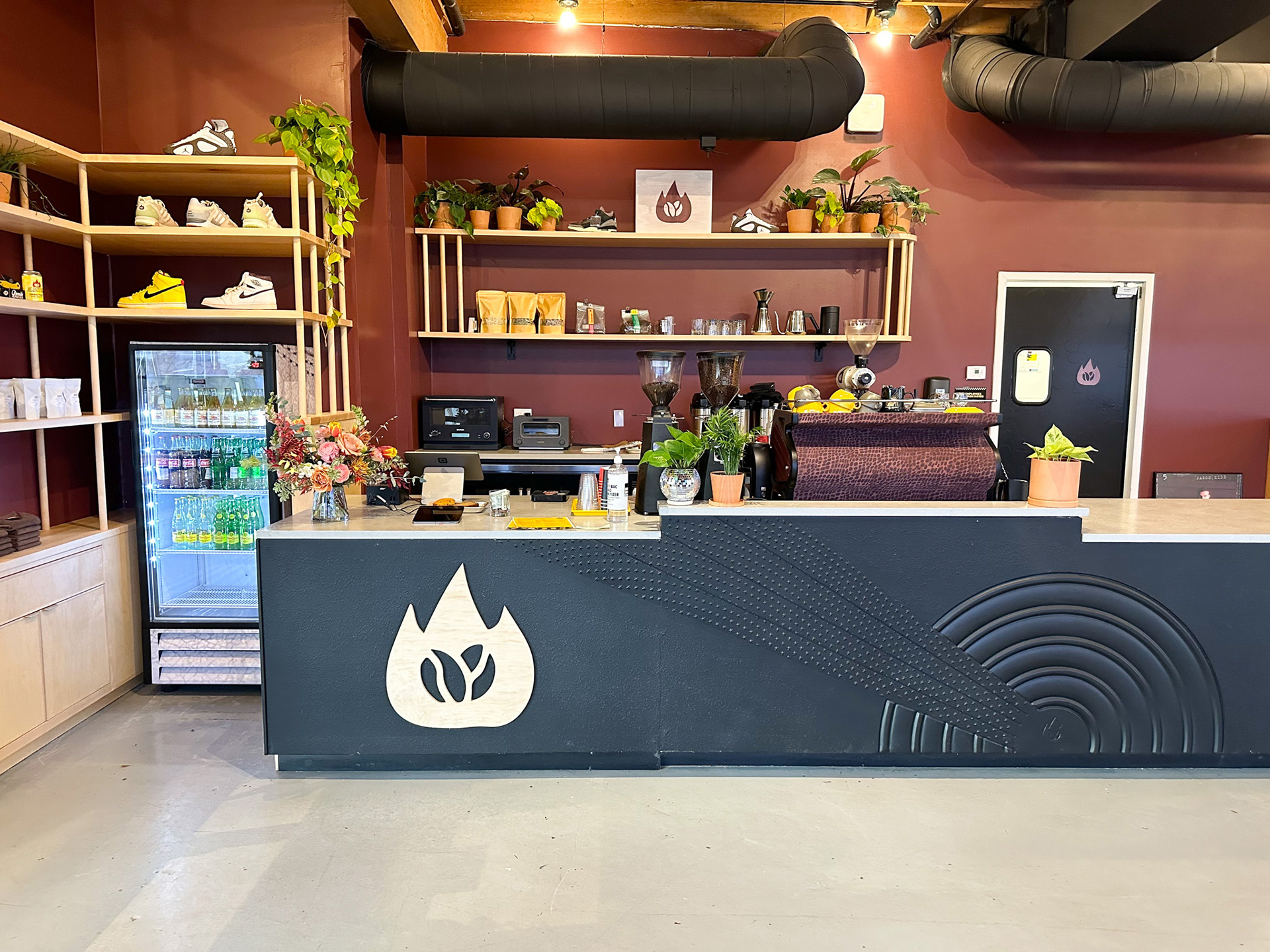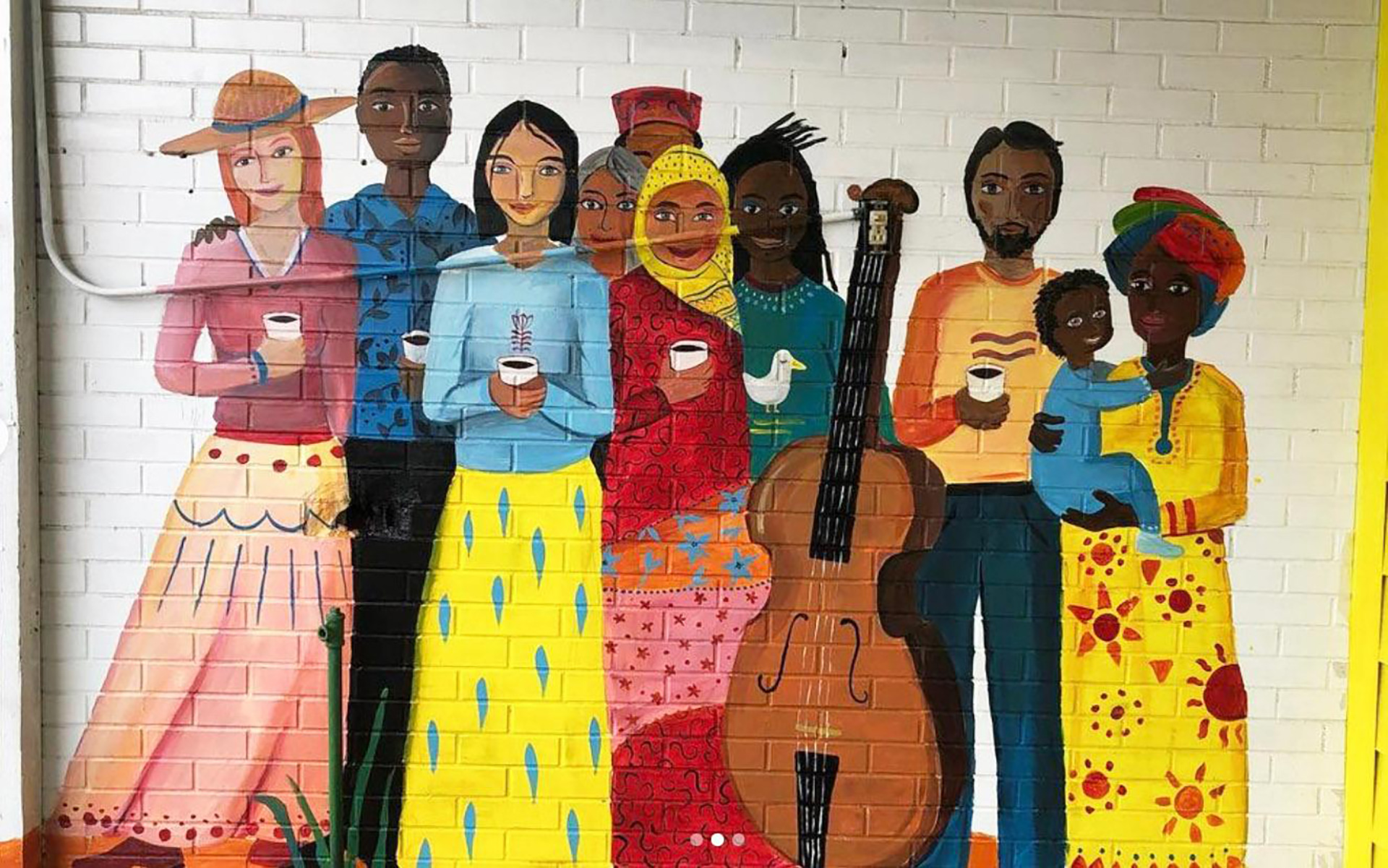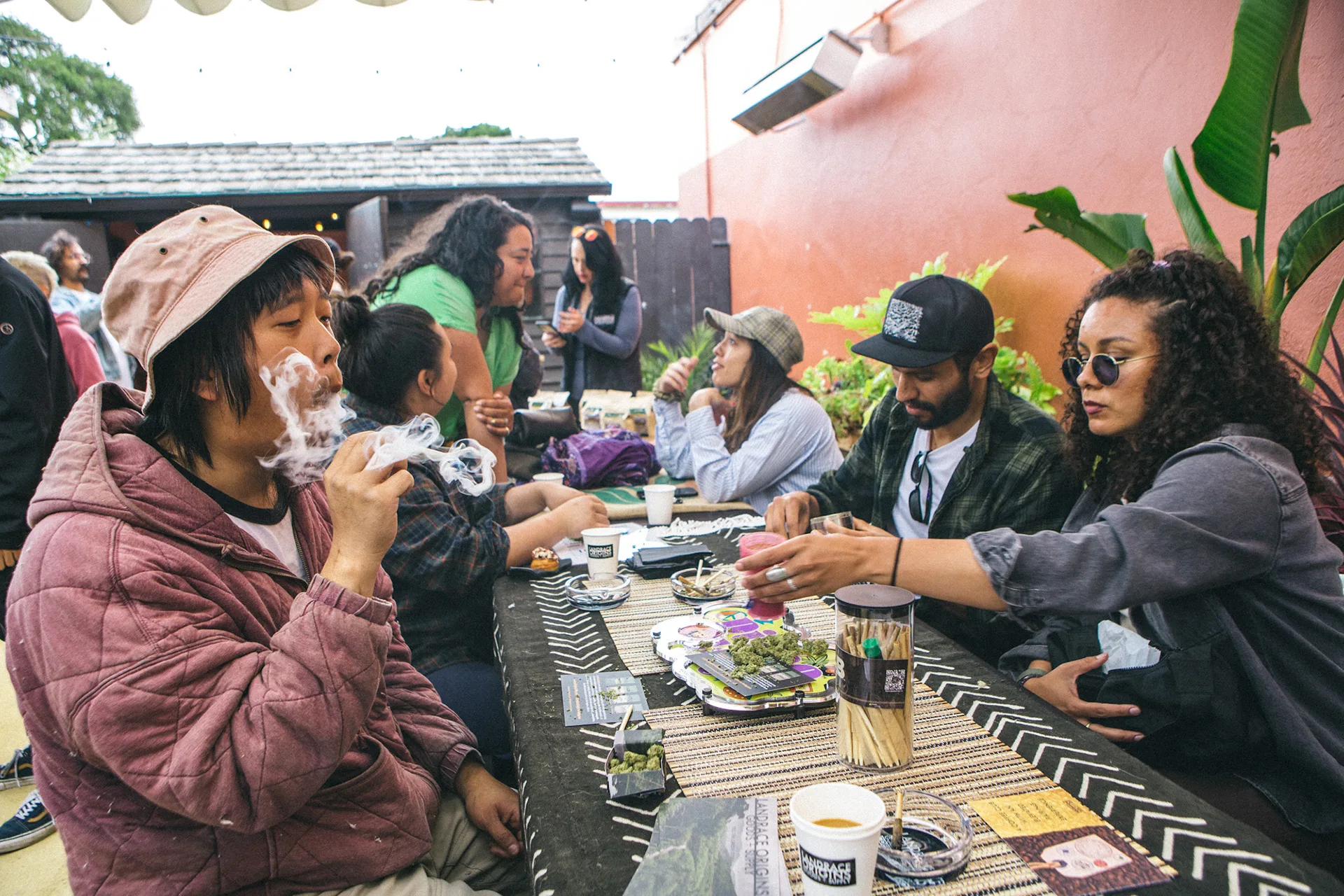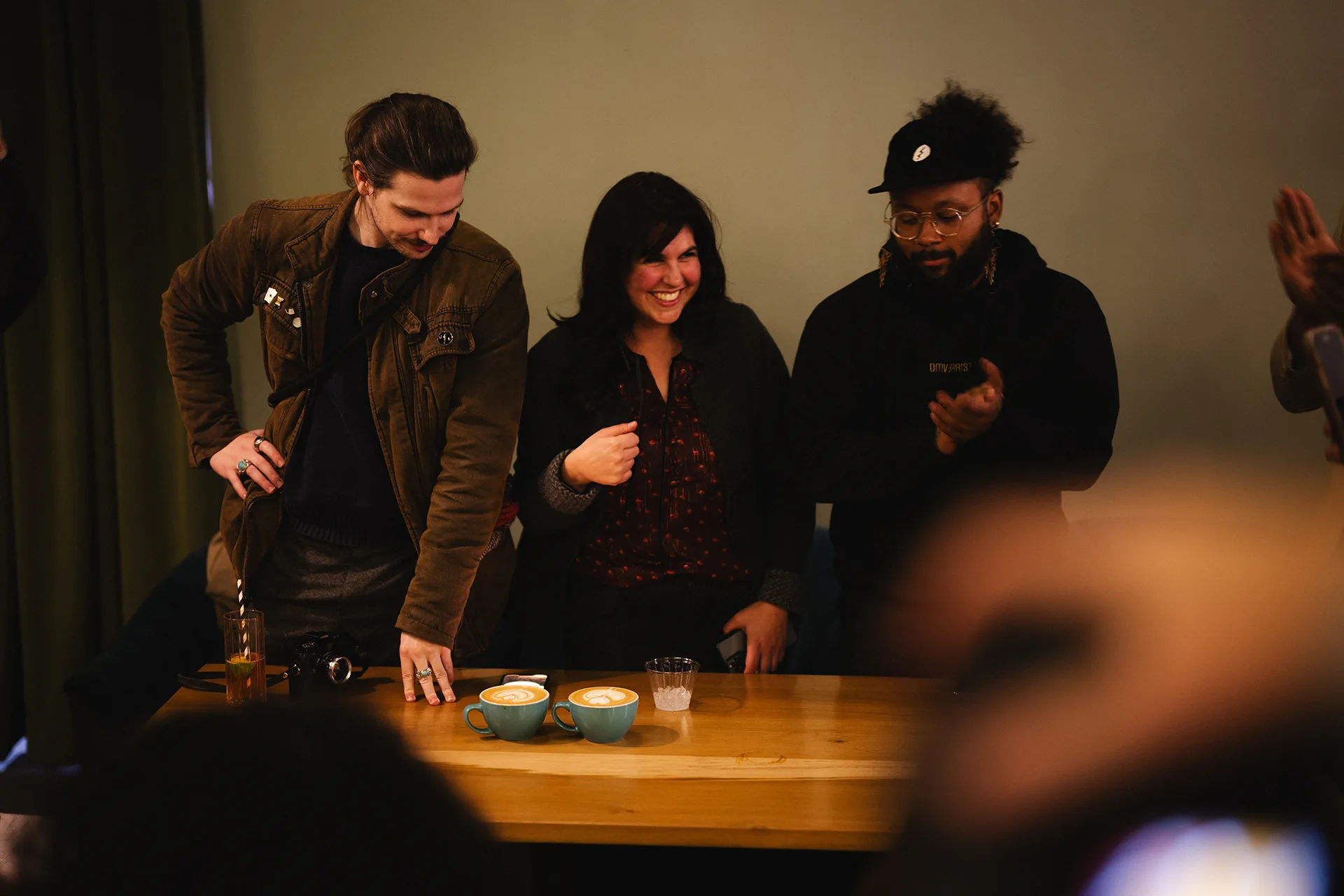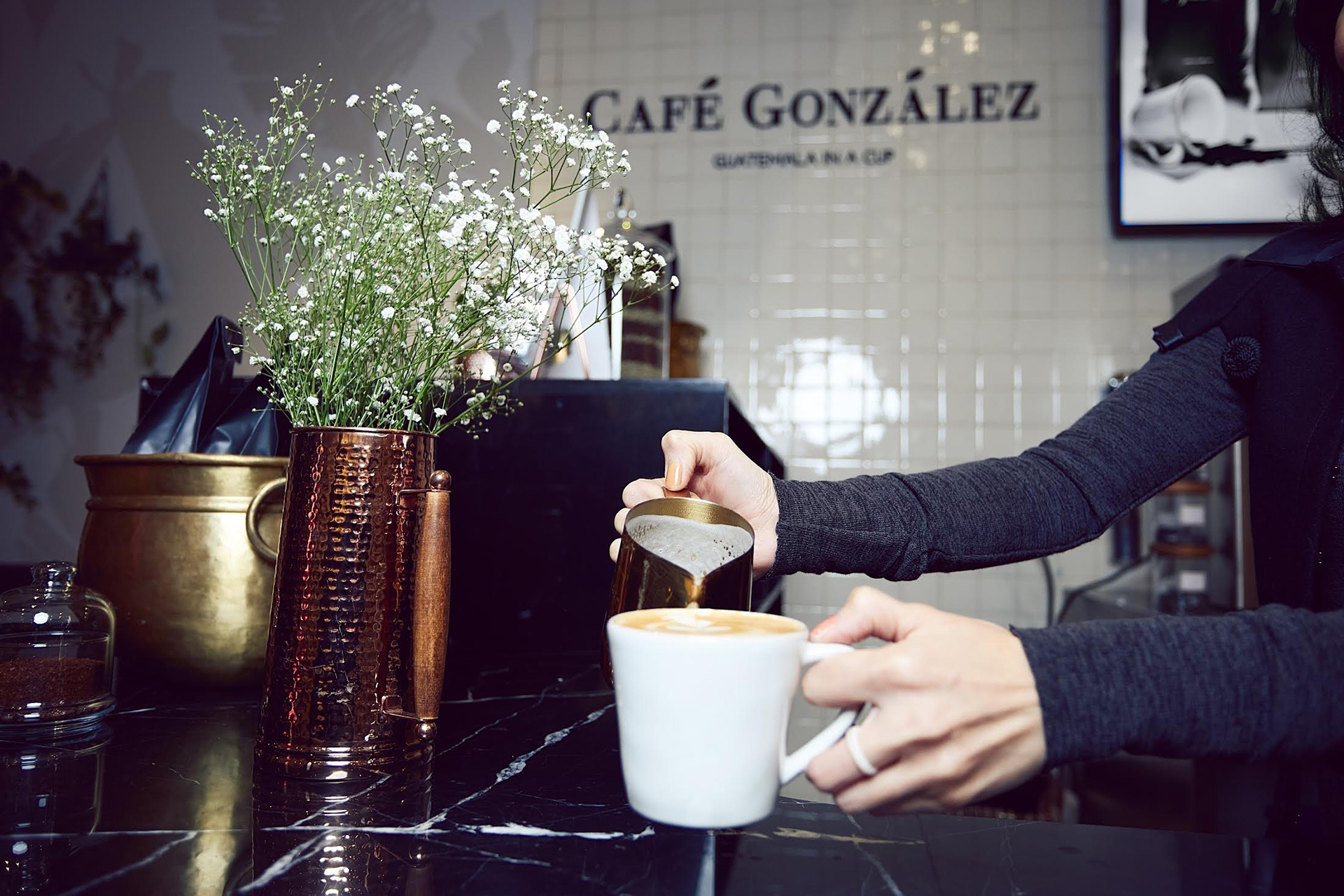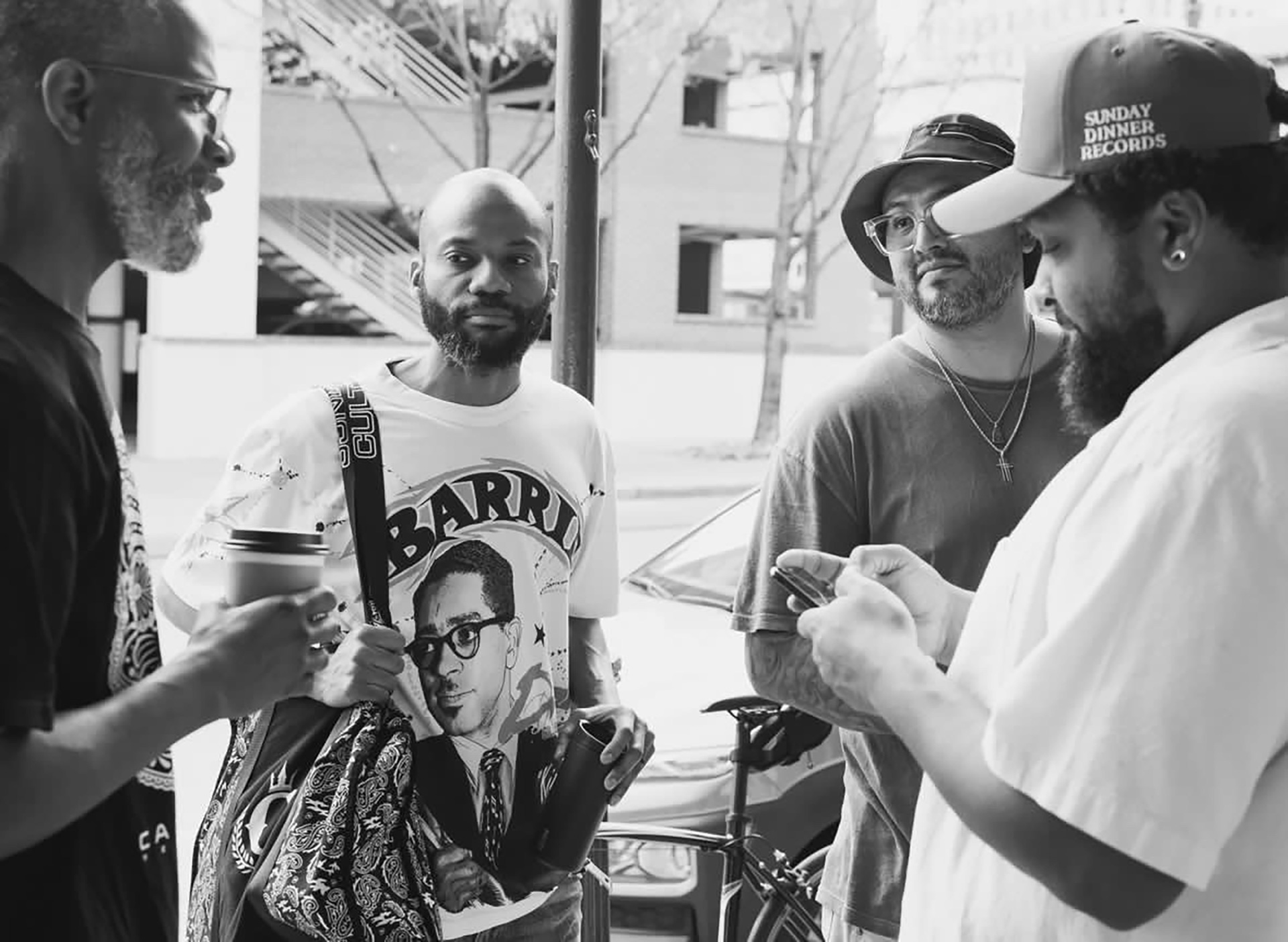What do coffee, wine, and corn have in common? Maybe more than you might think.
For starters, all three have been harvested for thousands of years over the course of the industrial revolution and global colonization. Each of them boast a unique and rich diversity of plant varieties, cultivation techniques, and global consumption representation. Specialty coffee has long fought for legitimacy after generations of Folgers and Maxwell House drinking consumers, while wine had centuries of wine culture as a foundation, though there has been a paradigm shift towards natural wine that actually began in the post-war years of the 1950s. Now Matt Diaz and Carlos Macias want to create this “ah-ha moment” for corn from commodity to the specialty for corn. Together they opened For All Things Good, a Bed-Stuy all-day cafe that celebrates the diversity of Mexican flavors by bringing maize, coffee, and natural wine all under one roof. But at this cafe, the corn is the star.
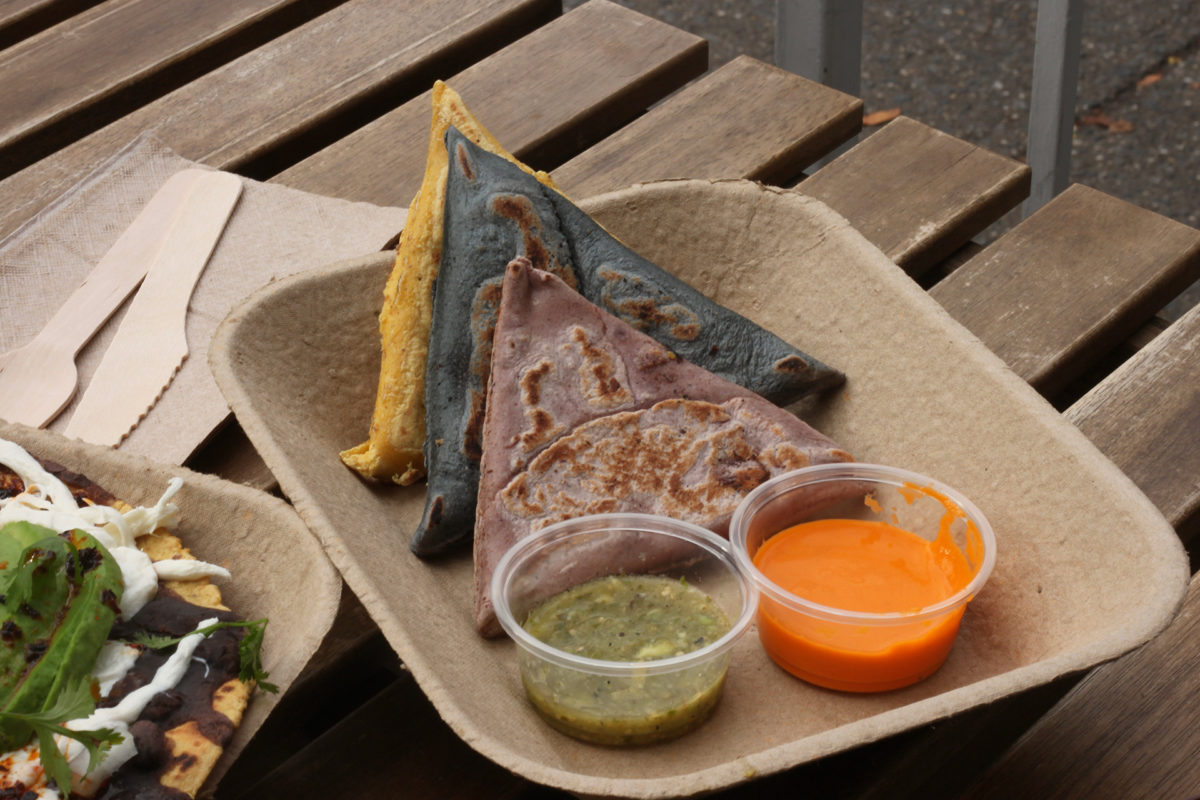
Diaz, a wine professional, and Macias, an architect, established For All Good Things in June of 2020. Their vision was to celebrate the birthplace of corn: Mexico. When they first met Diaz was studying oenology in Argentina while Macias worked in urban development in Mexico. They both ended up living and working in NYC when they started to see a gap in tortilla products they had learned to love abroad. Diaz started down a path to learn and absorb everything he could learn about maize and quickly realized the raw ingredients needed to product high quality corn foods were not largely available in grocery stores or for restaurants in the US. Diaz found inspiration while attending talks and events like one by Justin Bazdarich of Oxomoco at the Museum of Food and Design and worked his way into restaurants with masa programs. Quickly, he realized the fate of corn is similar to coffee. “What if every cafe and restaurant served instant coffee? That would be crazy. But that’s what we do with tortillas,” Diaz points out.
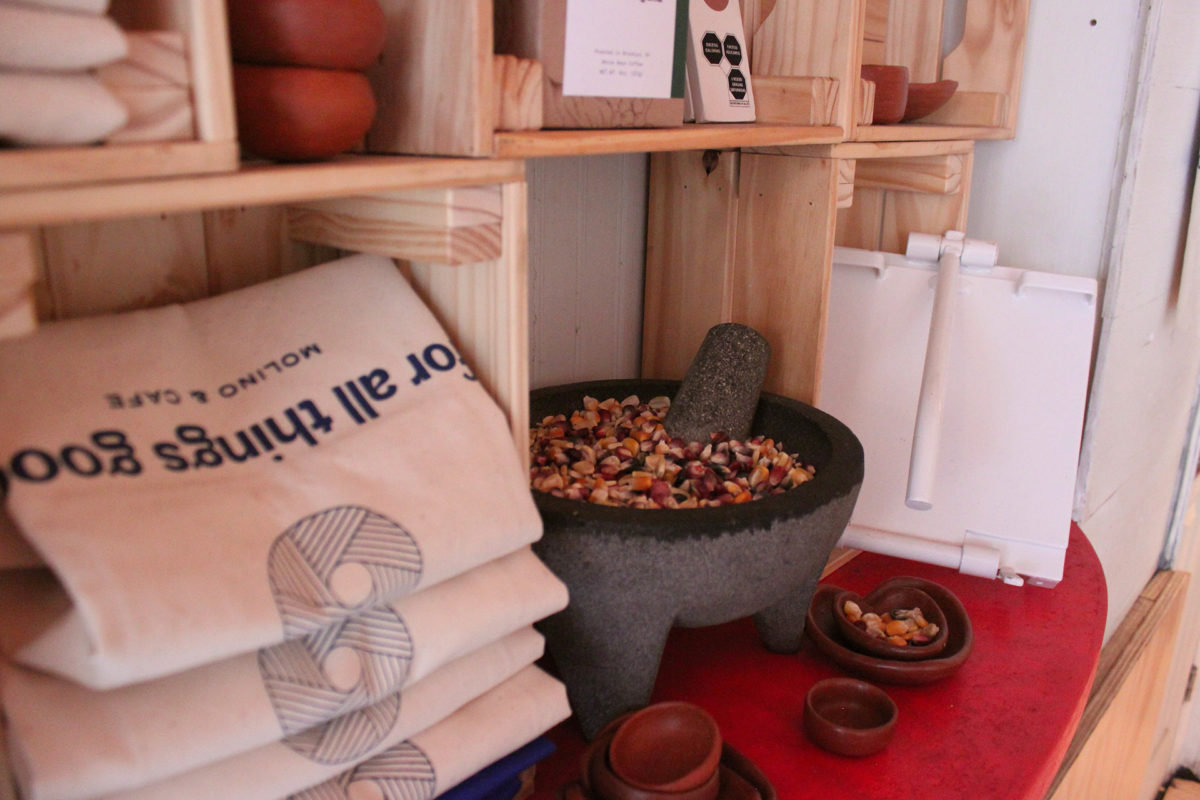
Maize is a crop that has an incredibly rich history of varieties and plant species, but in the US it is grown as a monoculture. This is the result of large-scale corn farming using government-subsidized GMO corn instead of heritage maize that grew in the Americas during pre-industrial times. In recent years, Mexico has even banned the sale of American corn to the country to protect the Mexican grown varieties of maize and protect the farmers from the harmful limbo of farmer subsidies. This corn regulation was baked into the hot topic political issues around the NAFTA (North American Free Trade Agreement). Zooming in, the effects are social; tortillas aren’t seen as specialty food items by most consumers.
Another economic challenge for maize lies in maintaining generational knowledge about its cultivation. When younger generations move away from farming as a career, it creates a gap that jeopardizes inherited farming practices like the Mayan milpa, a tradition of crop intermixing and rotation with spiritual and social connotations. Without consumer interest in maize, less commercially viable varieties run the risk of extinction. Though corn production doesn’t feel critical day to day, professionals like Diaz and Macias know we’re closer than ever before to losing living history, an agricultural issue all too familiar to anyone in the world of coffee harvesting. “It’s terrifying when you think about it, it’s been cultivated for thousands of years,” Diaz remarked.
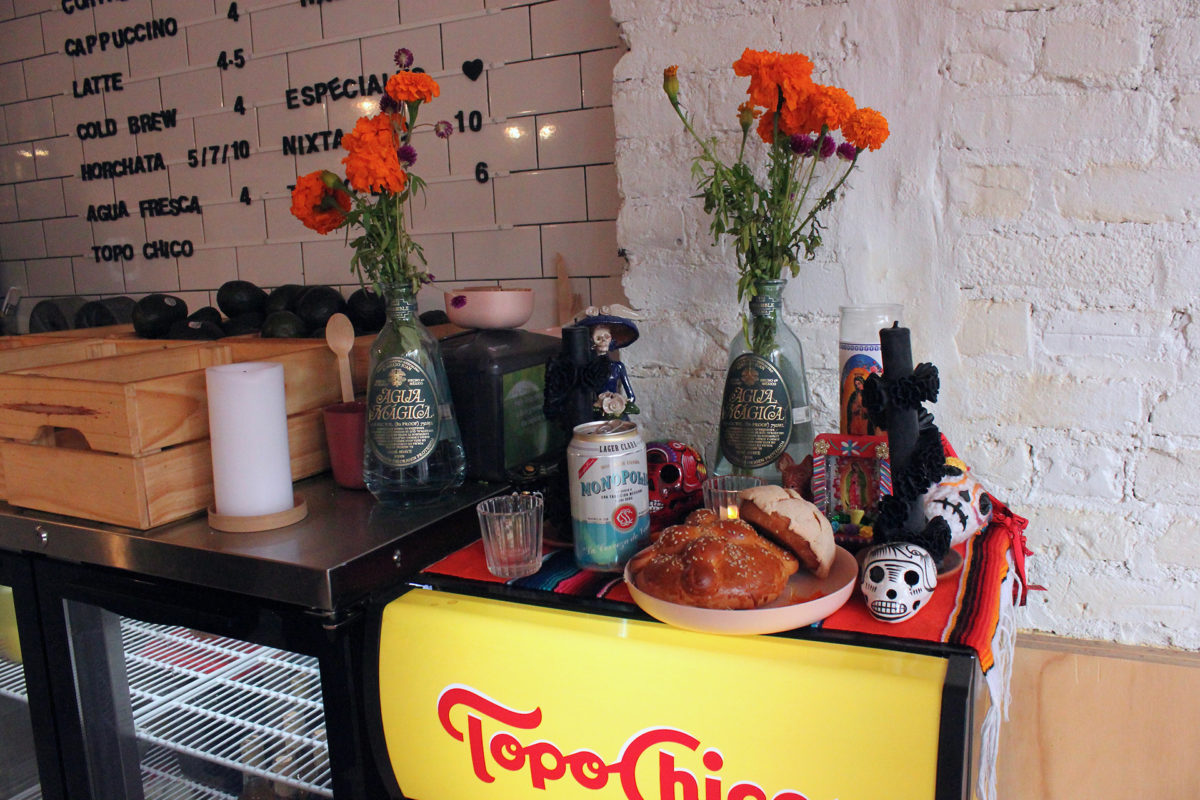
The commitment to support maize and the surrounding culture is fierce at For All Things Good. At the cafe, they nixtamalize three varieties of corn imported from Mexico. The nixtamalization process is a preparation of dried corn, cooked in an alkaline solution (historically this was done with lime—the mineral compound, not the fruit) and left to soak to remove the outer layer of the kernel called a pericarp. This process is akin to the one that produces washed process coffees. Once the corn has been processed, it can be milled like wheat. The mill is called a “molino,” which is the Spanish word for “mill,” but also refers to the place where the milling is done. In the tradition of milling, there are two volcanic stones used to grind the grain, which you might see ground by hand in many parts of Mexico. But in the business context, the best commercial-sized mills are often imported to the US and can cost around $10,000. Once the corn has been milled and water has been added, it’s referred to as “masa”, which is the dough used to make a variety of foods but most notably tortillas.
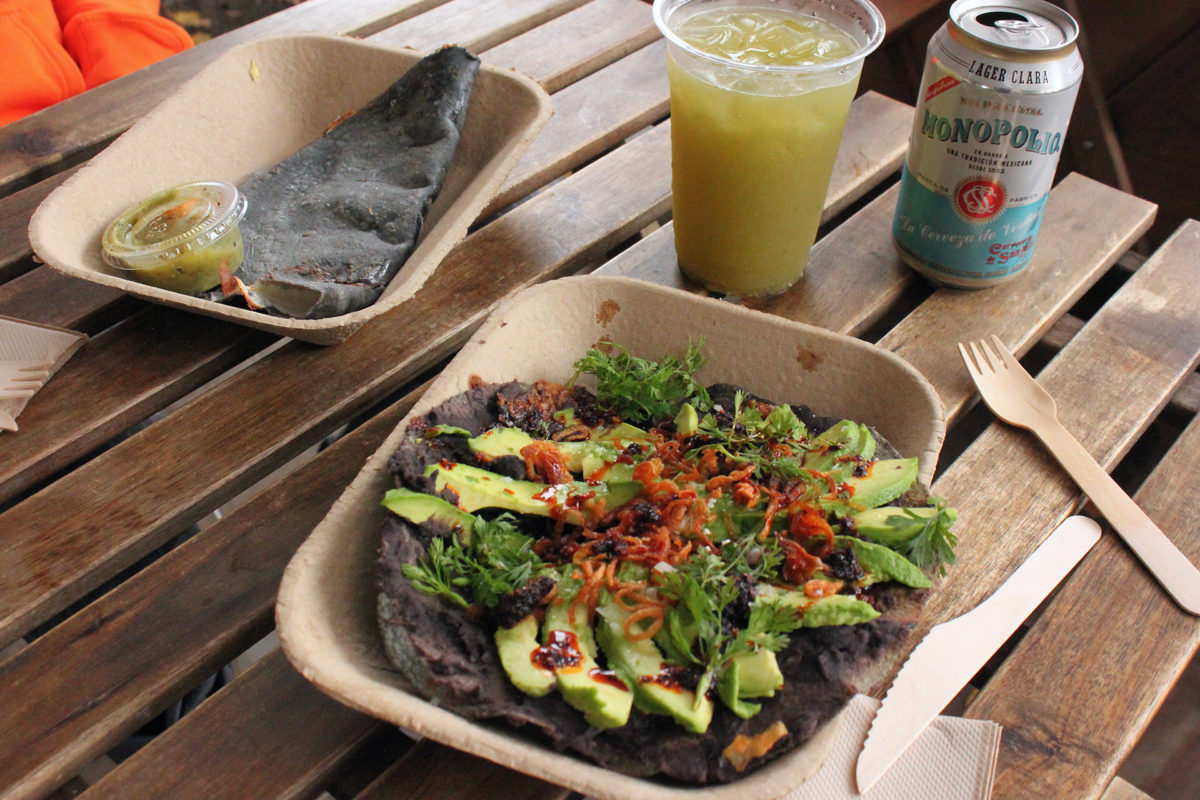
With his passion for maize at the forefront, Diaz had begun to take the first steps toward opening the shop when he decided that a coffee shop would be the perfect place to grow an audience for corn and masa products. The parallels between coffee production and corn production drew interesting parallels, but the American cafe culture that leads with barista-to-customer interactions was the key to starting a conversation about corn. Supported by the experts at Parlor Coffee, For All Things Good opened their doors with a simple setup: a two-group La Marzocco Linea EE, Mazzer Super Jolly, Mahlkönig EK43, and a batch brewer.
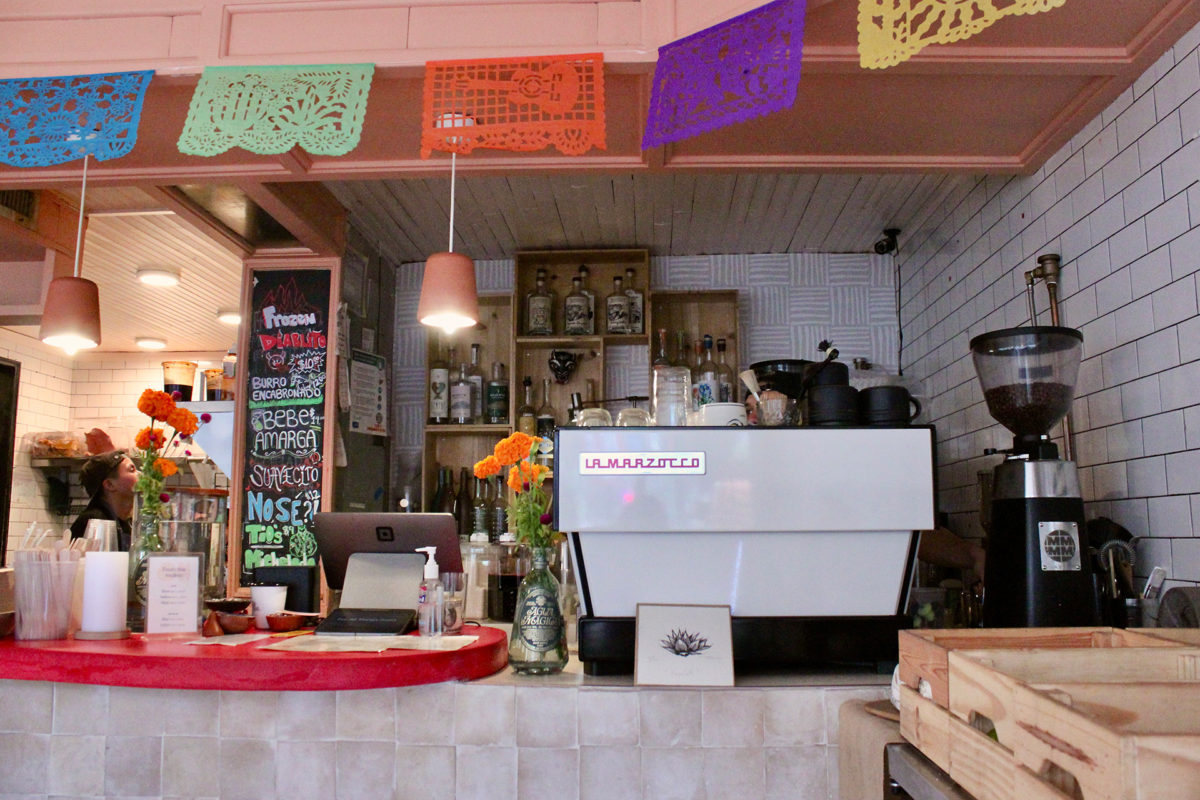
They import coffee from Mexico City-based roasters Buna, a regional leader in protecting Mexican coffee ecosystems that sources their beans from farmers in Oaxaca, Chiapas, and Veracruz. Creating continuity between everything offered in the cafe, “even the bitters in the cocktails are from Mexico,” Diaz points out. Buna opened their first cafe in 2012 in the Roma neighborhood of Mexico City, which was part of kickstarting third-wave coffee culture in Mexico’s capital. Diaz describes his day dream before they opened as a small space with a couple of people working at the time until they finally opened their doors. As it turned out, interest in trying masa-based foods in the community soared beyond their imagination.
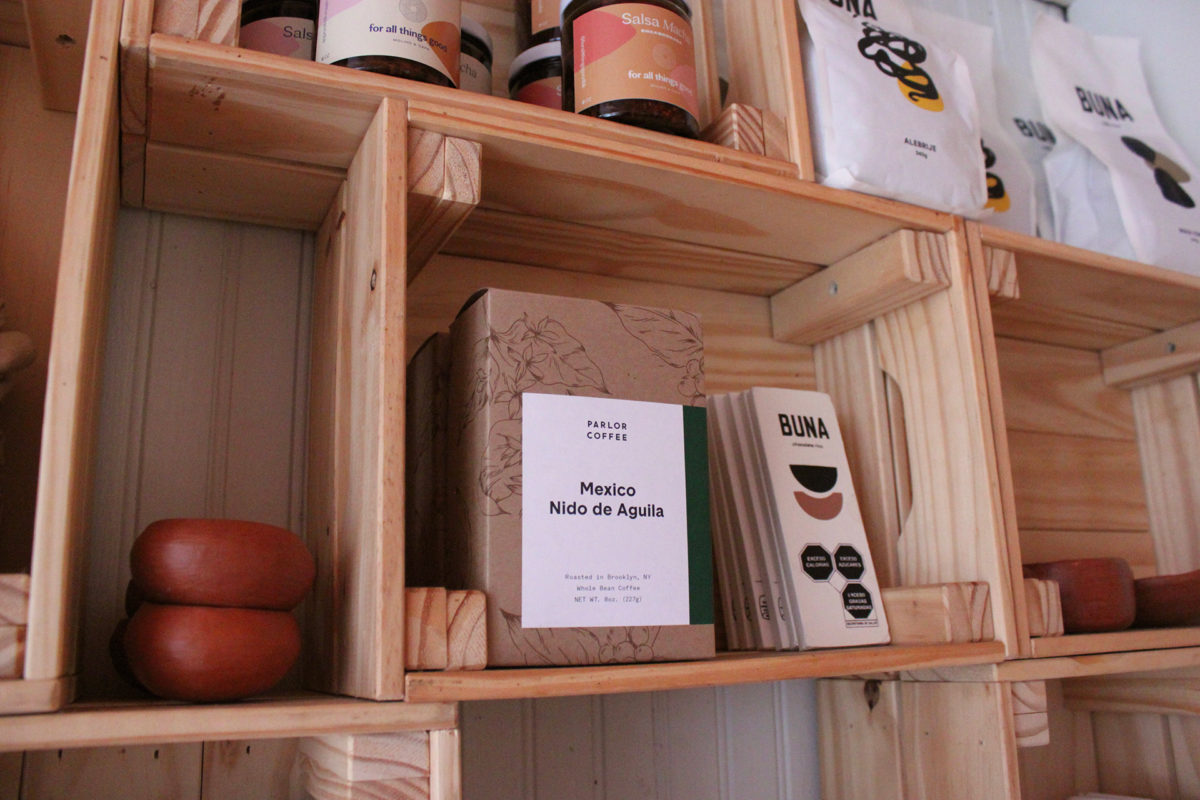
Their menu composed of what milpa farmers ate while working on the farm. The Nahuatl drink atole tastes like a sweet corn milkshake is made with freshly milled corn, milk, and a bit of vanilla. You can find triangle masa shapes filled with classic Mexican flavors called tetelas, round fried filled masa cakes called memelas, or crunchy flat tortillas topped with ingredients called tlayudas. Though this predominately pre-Hispanic menu sounds unfamiliar, the menu is surprisingly inclusive. They host a mix of Latinos looking for memories of Mexico and first-timers who are just happy for a taco and everyone in between. I asked Diaz, “Who is your target audience?” He replied “I’m always open to the conversation. Send anyone who wants to learn my way.”
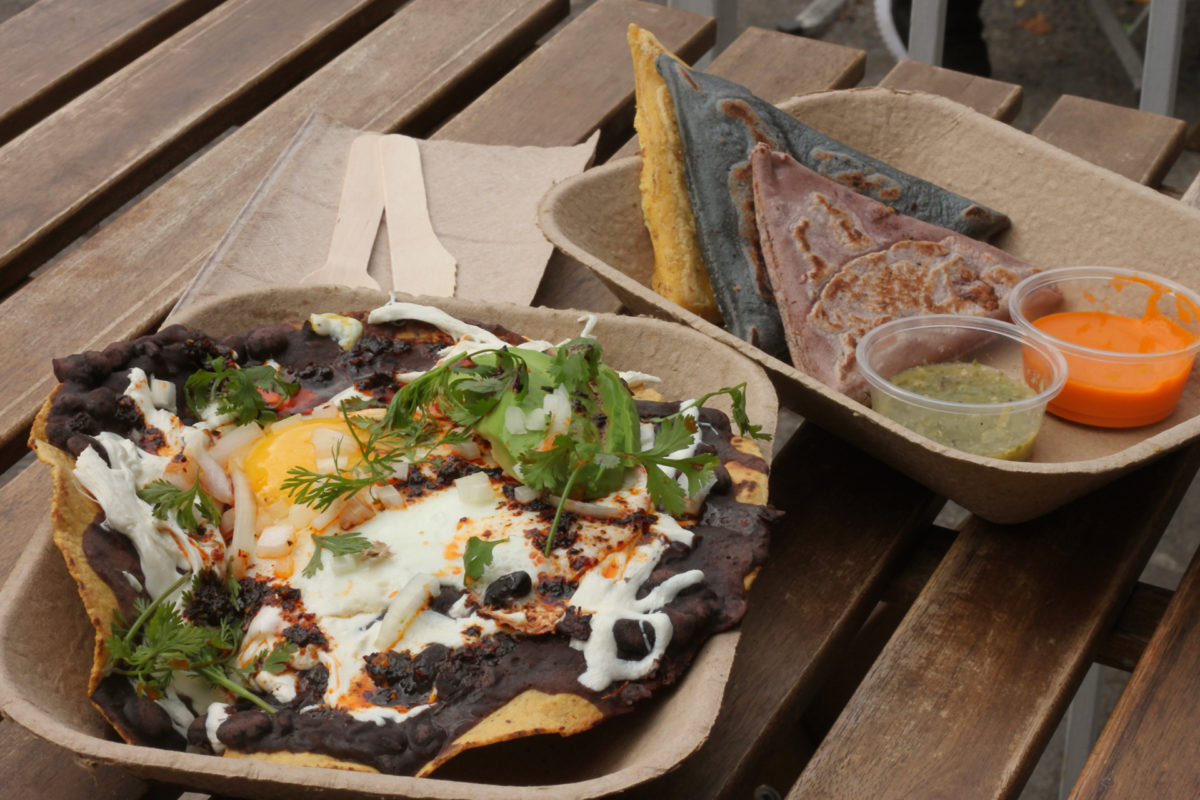
Every day, the cafe shuts down the morning service and reopens for dinner at in the evening. That’s when the alcoholic side of their menu shines. Personally, I’m more intrigued by their Mexican natural wine list which features Bichi’s No Name Still from Tecate, Mexico, or the Vena Cava Grenache Natural. Diaz’s expert experience in the wine industry means he’s always got his eye out for more exciting and interesting wines. Working with importers like Jose Pastor Selections and Zev Rovine Selections, he’s encouraging them to bring new wines to their list. This celebration of Mexico shows up in drinks like Micheladas, single farmer mezcals, and refreshing cocktails.
True to form, Diaz hopes events will continue to ignite curiosity. His larger vision in the food world to transform the way we perceive corn is holistic in the way he offers a platform for others to share their story. He sees pop-ups and hosting guest chefs as an opportunity to “expands beyond the self imposed limitations of our menu.” On my first visit to the cafe they hosted a pop up featuring a guest chef Yoni Lang, formerly of Uchi in Austin, TX and recently of Rosella on the Lower East Side. On my last visit to the cafe, there was a pop-up featuring two folks from Mijenta Tequila talking through agave processing for guests. If you find yourself wanting to learn more and join in experience, follow them on social media and swing by for a flauta in Brooklyn. This place is an education, a revelation, and a delicious experience—truly all things good.
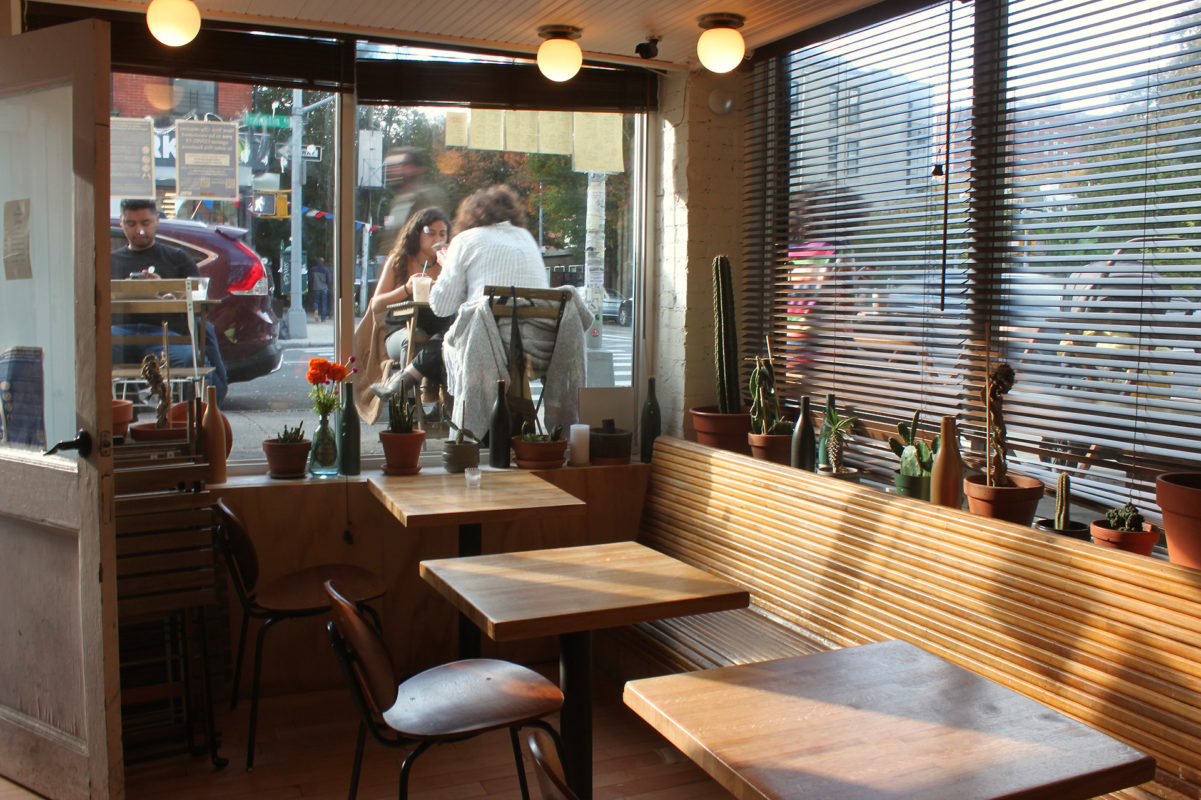
Kathy Altamirano is a coffee professional and freelance journalist based in New York City. Read more Kathy Altamirano for Sprudge.




